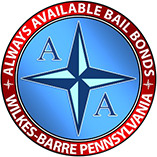The stakes can be high when you or a loved one face criminal charges. That means one of the most important decisions you can make during this time is to choose the right bail bond company in Allentown, PA, to help you post bail and move forward with your case.
What makes this choice so important? Well, it can affect the outcome of your case and the overall security of your freedom. Here are some tips to use when trying to find the right company for when you need 24-hour bail bonds.
Do Your Research – Look up the services, fees, and customer satisfaction ratings of reputable bail bond companies in your area. This can give you a better understanding of the company’s reputation.
Ask Questions – Ask the bondsman about their fees, experience, and the process for posting bail. It is also good to ask about their policies and procedures for handling missed payments, missed court dates, or other common issues.
Check for Licensing – You always want to ensure that whichever company you work with is licensed and insured in the state where they operate. You can verify the company’s license and insurance using your state’s licensing board.
Get Referrals – If you know someone who has previously used a bail bond company, it is a good idea to ask about their experience. This could help you narrow down your search dramatically.








